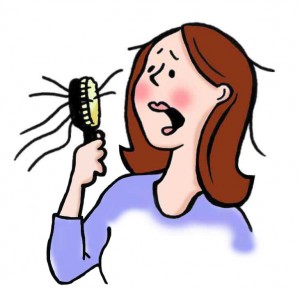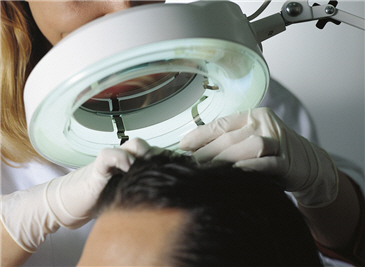Hair Loss, What Amount of Hair Do You Shed Every Day ?
03.11.2008 in HAIR LOSS FACTSAlthough prevalent belief insists that humans shed 100 hairs daily, no one is quite sure, according to a new study. The current belief also lacks scientific basis and does not indicate whether shedding remains constant with age or if it is similar for men and women.
A better and more reliable way of calculating hair loss is a 60-second count, concluded the study by researchers at the Baylor College of Medicine, Houston.
“Currently, there is no widely accepted or standard method for assessing the number of hairs shed daily,” said the study.
The study, led by Carina A. Wasko, looked at hair loss in 60 healthy men (half aged 20-40 years and half aged 41-60) without evidence of baldness.
All participants were given identical combs and instructions to wash hair with the same brand of shampoo for three consecutive mornings.
On the fourth day, they were asked to comb hair forward for 60 seconds over a towel or pillowcase of contrasting colour before shampooing.
The men combed their hair this way and then counted hairs shed for three consecutive days. This procedure was repeated in eligible participants six months later.
The younger set of participants shed 0 to 78 hairs, with an average loss of 10.2 hairs per 60-second test. Men aged 41-60 shed 0 to 43 hairs, with an average loss of 10.3 hairs per 60-second test.
Results were consistent on consecutive days for all participants. When repeated six months later in both age groups, the hair counts did not change much.
“The hair counts were repeated and verified by a trained investigator, with results similar to those of subject hair counts,” the authors write.
“The 60-second hair count is a simple, practical and objective tool for monitoring conditions associated with hair shedding,” the authors said.
These findings have appeared in the latest issue of the journal Archives of Dermatology.
Do you have Hair Loss Problems, read our Hair Loss Help








